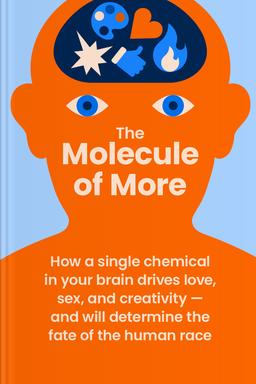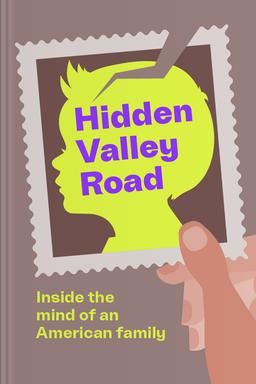What is The Code Breaker about?
This compelling narrative explores the groundbreaking work of a pivotal scientist in gene editing, tracing her journey and the development of CRISPR technology. It delves into the ethical implications of modifying human DNA and the potential to revolutionize medicine, agriculture, and beyond. The book weaves together science, biography, and the pressing questions of our time about the future of humanity and the moral responsibilities that come with such advancements.
Who should read The Code Breaker
- Science enthusiasts fascinated by gene editing
- Students studying biotechnology and genetics
- Readers interested in ethical implications of genetic engineering
What is The Molecule of More about?
This insightful exploration delves into the powerful role of dopamine, a key brain chemical, in shaping human emotions and behaviors. It reveals how dopamine influences love, creativity, and ambition, while also highlighting its potential pitfalls. Through engaging stories and scientific analysis, the authors uncover how this single molecule impacts our lives and decisions, ultimately affecting our future as a species.
Who should read The Molecule of More
- Psychology enthusiasts eager to understand human behavior.
- Creatives seeking insight into inspiration and motivation.
- Couples wanting to deepen their relationship dynamics.
What is Hidden Valley Road about?
This compelling narrative explores the complex lives of the Galvin family, delving into the impact of mental illness as six of their twelve children are diagnosed with schizophrenia. Through personal stories and scientific insights, the book examines the struggles, stigma, and resilience surrounding mental health, while highlighting the family’s pursuit of understanding and acceptance amid chaos. A poignant look at love, loss, and the quest for clarity in the face of mental health challenges.
Who should read Hidden Valley Road
- Mental health advocates seeking deeper understanding.
- Families navigating similar challenges and struggles.
- Readers interested in true crime narratives and psychology.
What is Lifespan about?
This groundbreaking work explores the science of aging and presents compelling arguments and research on how we can extend our lifespan. The author delves into genetic, nutritional, and lifestyle factors that influence aging, offering practical insights on how to enhance health and vitality. With a blend of scientific rigor and accessible writing, the book challenges conventional beliefs about aging and presents a hopeful vision for the future of human longevity.
Who should read Lifespan
- Health enthusiasts seeking to extend their lifespan.
- Scientists exploring aging and longevity research.
- General readers interested in health and wellness advancements.
What is The Gene about?
This book explores the history and significance of the gene, weaving together science, personal narrative, and historical anecdotes. The author delves into genetics' complex role in defining who we are, tracing its development from early theories to modern advancements. Through engaging stories, it discusses the ethical implications and future of genetic research, making it a profound reflection on heredity, identity, and the ongoing quest to understand life itself.
Who should read The Gene
- Genetics enthusiasts seeking a deeper understanding.
- History lovers interested in the evolution of science.
- Medical professionals wanting insights into genetic research.




